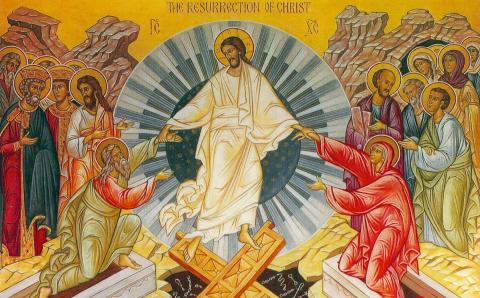As I Was Saying is a forum for a variety of perspectives to foster faith-related conversations among our readers with the goal of mutual learning, even in disagreement. Apart from articles written by editorial staff, these perspectives do not necessarily reflect the views of The Banner.
Truth is a laden word these days. We see it being shouted out by people on opposite ends of a spectrum over a number of polarizing issues. In many instances, the word “truth-telling” is misused when it becomes a self-justifying moral high ground against critiques.
We live in a spiritual warfare that has become intricately complicated and multi-layered. But the essence of this warfare, the main battlefield, is still about truth versus falsehood.
“What is truth?” The same question was once asked by Pontius Pilate to Jesus Christ, who is THE Truth. This biblical scenario always struck me as deeply profound. It was as if a blind man who was basking in pure light unbelievingly asked, “What is light?”
Truth-telling can be very costly in some cultures. Take the #MeToo movement: the first outspoken victim or advocate has always been hushed, shunned or verbally attacked. The cost of losing friendships and trust for people can be disorienting in life, to say the least.
On the other hand, such experiences themselves are also truth-revealing moments. The realization of how fragile human relationships are and how people succumb to spiritual darkness is sobering.
I know this because I have been there. Truth first dealt with me. When a #MeToo story in the church was confided to me, my default mode was silence. I said I would pray for her. Then I looked away. But for the next two years, my conscience continued to moan. I had to go back and ask about what really happened. It was emotionally draining to pull myself together and listen to the details. But the power of truth demands I look it in the face, despite great unease. Being able to finally do that was spiritually liberating.
The biggest struggle came to me after hearing and believing the truth. The knowledge of such soul-wrenching truth demands my speaking up for them. Through writing for the Chinese-language public media, I had been an advocate for vulnerable groups, including displaced workers, migrant children, and vulnerable women. I felt compelled to become their voice. If truth is entrusted to me, where else can I stand? For I believe that truth bends toward the vulnerable, not the powerful. In the literal sense, the person of Truth once did bend down on us—he became one of the vulnerable, and paid the cost as an advocate for his people.
In these circumstances, truth-telling can be a testing spiritual discipline. I tell the truth and extend trust to people who are willing to hear it. Then I prepare myself for that trust to be forfeit, for my own credibility to be challenged. Often times, I expect defeat. Positive receptions have surprised me occasionally.
The ministry of Jesus Christ on earth also was about truth-telling. With that, Jesus became a pain to the religious leaders. Knowing the utmost depravity of human nature, Jesus must have prepared for defeat, too. He did it nonetheless. I often thought to myself—compared to the hypocrisy, heresy and abuses that Jesus saw with his supernatural sight, my sample of the same categories is probably undersized.
A lawyer-pastor friend once encouraged me, “Truth is your best defense.” I then realized I do not need to defend the truth. It is quite the opposite—truth will defend me. I later came to understand my role as a presenter: I can actively present the truth, and then truth-telling becomes the hearer’s accountability. God is testing this person’s heart in how he or she responds to it. While doing this, it is important my attitude and demeanor should also embody truthfulness and humility.
But truth-telling can often trigger an internal war of anger inside of me. This is why I admire Rachel Denhollender’s peaceful and reconciling demeanor even when she was battling the most horrific offenses. It takes a deep reliance on God to practice that kind of self-control and spiritual sobriety to not be overcome by indignation. Watching the cloud of #MeToo witnesses, I am amazed at how some victims of sexual abuse rose above their trauma to become more like Jesus Christ. Truth-telling restores our Christ-like humanity.
When is truth-telling not costly? Never. Not even for God.
About the Author
Mary Li Ma is a member of Plymouth Heights CRC church in Grand Rapids, Mich. She holds a Ph.D. from Cornell University and now works as a research analyst for a national research center on education equity.








